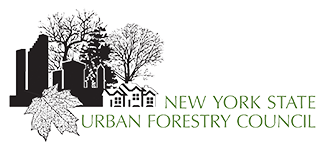The first World Forum on Urban Forests was held in Mantua, Italy (Mantova in Italian) in 2018. New Yorkers are fortunate that attending the second WFUF is more in reach: it will be Oct 16-20, 2023 in Washington, D.C. The New York State Urban Forestry Council will be accepting applications for scholarships to help support current dues-paying members of the Council in attending the WFUF. More info about that to come.
The Society of Municipal Arborists (SMA), rather than having its typical stand-alone conference, will have programming interwoven through the WFUF. The Arbor Day Foundation is thrilled to announce that the 2023 Partners in Community Forestry Conference and Alliance for Community Trees Day will be held in as part of the World Forum on Urban Forests as well. ADF and the International Society of Arboriculture (ISA) are among the co-organizers for WFUF.
The overall theme of the 2023 WFUF will be: Greener, Healthier and Happier Cities for All. This theme was chosen to highlight the importance of building inclusive and accessible cities where the goods and services of urban forests and trees are universally available. The aim of the Forum is to continue to highlight positive examples of planning, design, and management approaches that cities with diverse cultures, forms, structure, and histories have implemented to optimize the contribution that urban forests and green infrastructure can provide in terms of economic development, environmental conservation and resilience, improved social cohesion, and increased public involvement.
Urban forests and green spaces are key components of sustainable and resilient urban development, providing a wide range of ecosystem goods and services. They play an important role toward the achievement of the United Nations’ Sustainable Development Goals, in particular SDG11, which focuses on making cities safe, resilient, and sustainable.
To give you an idea of the scope of WFUF, here’s a description of the first event:
From 28 November to 1 December 2018, the 1st World Forum on Urban Forests brought together over 600 representatives of national and local governments, academia, NGOs, international organizations and the private sector from more than 70 countries, to discuss the benefits of urban forests and trees. Over 140 presentations made in plenary and parallel sessions provided a rich overview of the benefits that urban forests bring for sustainable economic growth, health, environmental conservation, social cohesion, and public involvement. In addition speakers presented inspiring practical examples of urban green planning, design, and management in both large and small cities around the world. The technical and scientific quality of the programme was overseen by the international scientific committee, headed by Stefano Boeri, architect and urban planner, and Cecil Konijnendijk, University of British Columbia Professor and co-founder of the Nature Based Solutions Institute.


